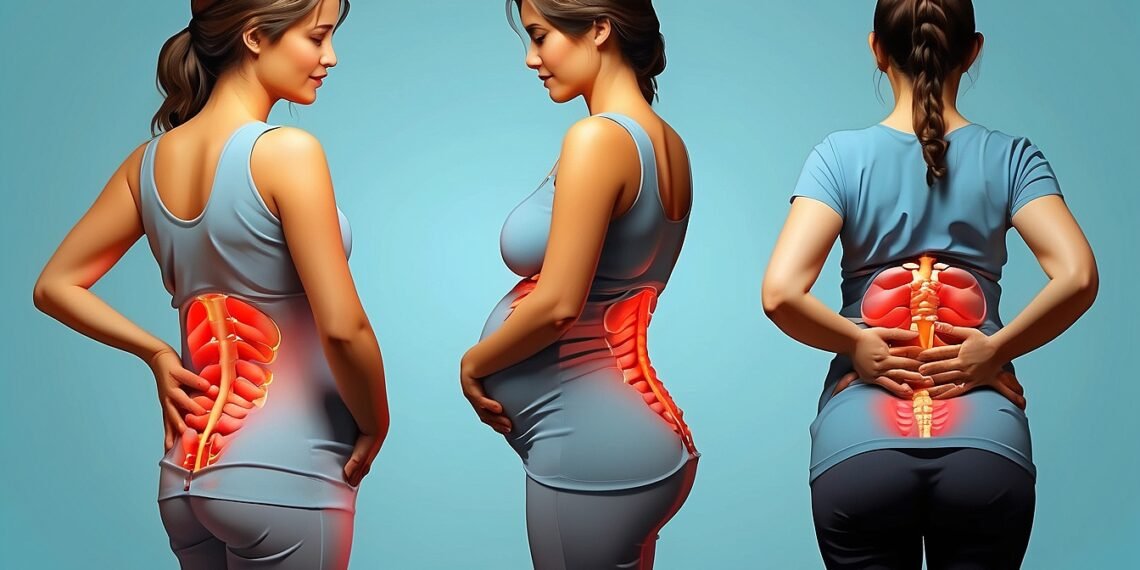Lower back pain can be a sign of early pregnancy for some women, though it’s not always indicative. Understanding the potential mechanisms, treatment options, and when to seek medical advice can be helpful when navigating this discomfort.
Direct/Indirect Mechanisms:
- Physical changes: The growing uterus and weight gain put strain on the lower back muscles and ligaments.
- Hormonal fluctuations: Relaxin, a hormone increasing during pregnancy, loosens ligaments, potentially causing instability and pain.
- Posture: Shifts in the center of gravity due to the growing uterus can lead to poor posture and contribute to back pain.
Treatment Options:
- Over-the-counter pain relievers: Acetaminophen is generally considered safe during pregnancy.
- Heat and ice therapy: Applying heat packs or ice packs to the affected area can provide temporary relief.
- Prenatal massage: Gentle massage by a trained professional can relax muscles and alleviate pain.
- Physical therapy: Specific exercises can strengthen core muscles and improve flexibility, reducing pain and discomfort.
Definitions:
- Uterus: The muscular organ in a woman’s body that supports and nourishes a developing fetus during pregnancy.
- Ligaments: Bands of connective tissue that connect bones to other bones or muscles to bones.
- Center of gravity: The point around which the weight of an object is evenly distributed.
- Core muscles: The muscles in the abdomen and lower back that provide support and stability for the spine.
When to See a Doctor:
Consult a doctor if:
- The pain is severe or persistent.
- It radiates down your legs (sciatica).
- You experience vaginal bleeding or spotting.
- You have fever, chills, or other concerning symptoms.
- You have any doubts or concerns about the pain.
Additional Resources:
- American College of Obstetricians and Gynecologists: https://www.acog.org/
- Mayo Clinic: https://newsnetwork.mayoclinic.org/discussion/back-pain-and-pregnancy-ways-to-minimize-strain/
- National Institute of Child Health & Human Development: https://www.nichd.nih.gov/
- YouTube video on lower back pain exercises during pregnancy: https://www.youtube.com/watch?v=S3xXurLpfDk
Remember, lower back pain during pregnancy is typically harmless, but seeking medical advice can ensure your well-being and address any underlying concerns.
Follow-up questions about lower back pain in early pregnancy:
Specifics of Pain:
- When did the lower back pain begin?
- Is the pain constant or does it come and go?
- How severe is the pain on a scale of 1-10?
- What type of pain do you experience (e.g., sharp, aching, burning)?
- Does the pain radiate anywhere else in your body?
- What movements or activities aggravate the pain?
- What makes the pain feel better or worse?
- Have you noticed any changes in your menstrual cycle or any unusual vaginal discharge?
Relationships:
- How is the lower back pain affecting your daily activities and ability to work?
- Are you having difficulty sleeping due to the pain?
- How is the pain impacting your mood and relationships with family and friends?
- Do you feel supported by your partner or loved ones in managing the pain?
Treatment and Management:
- Have you tried any over-the-counter pain medications or home remedies like heat or ice therapy?
- Have you discussed any treatment options with your doctor or midwife?
- Are you open to trying complementary therapies like prenatal massage or acupuncture?
- Have you started any specific exercises or stretches recommended for lower back pain during pregnancy?
Other Potential Causes:
- Have you experienced any recent falls or injuries that could be related to the pain?
- Do you have any pre-existing medical conditions, such as joint issues or back pain before pregnancy?
- Have you gained weight rapidly during pregnancy?
- Have you noticed any changes in your posture or gait due to the growing uterus?
- Have you discussed the possibility of other causes of your lower back pain with your healthcare provider?
Additional questions:
- What are your biggest concerns about the pain and its impact on your pregnancy?
- What are your specific goals for managing the pain and improving your comfort?
- What questions do you have about the pain and the best course of action?
- What would be most helpful to you in managing the pain and maintaining a healthy pregnancy?

